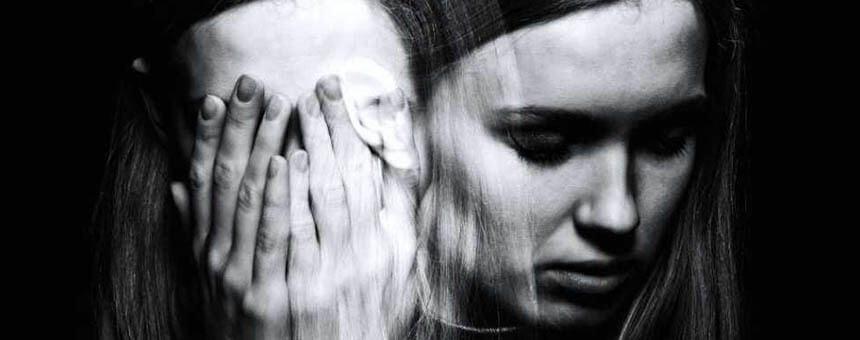
If you or a loved one is struggling with a Dual Diagnosis in Los Angeles, Breathe Life Healing Centers can help. As a leading Dual Diagnosis Treatment Center in Los Angeles, we provide a safe and supportive environment for those who are seeking relief and stabilization from co-occurring mental health and substance use disorders.
According to the National Survey on Drug Use and Health, millions of Americans are affected by Dual Diagnosis, with men being more affected than women. It is not uncommon for one condition to develop before the other, such as PTSD leading to alcohol abuse, or meth addiction leading to depression.
At Breathe Life Healing Centers, we understand the complexities of Dual Diagnosis and offer personalized treatment plans that address both conditions simultaneously. Our Los Angeles Dual Diagnosis Treatment team of experienced professionals works with clients to develop skills and coping mechanisms that can be applied in real-life situations.
Don’t let Dual Diagnosis hold you back from living the life you deserve. Contact Breathe Life Healing Centers in Los Angeles today to learn more about our effective Dual Diagnosis Treatment programs.

EACH CLIENT IS PROVIDED WITH A TREATMENT PLAN SPECIFICALLY DESIGNED TO MEET THEIR PERSONAL NEEDS.
Symptoms of Dual Diagnosis
While bipolar disorder and alcoholism, ADHD and cocaine addiction, and ecstasy and depression are some of the more common dual diagnoses, any combination of addiction and mental illness can result in this condition. At Breathe Life Healing Centers, our experienced Los Angeles dual diagnosis Treatment team provides personalized treatment plans that address the unique needs of each client, helping them achieve lasting recovery and improved quality of life.
Instead, people can experience any combination of addiction and mental illness, causing symptoms of this type of condition to vary significantly.However, there are some symptoms of dual diagnosis that are typically carried throughout all types of this condition, including the following:
- Isolation from friends and family
- Drastic, sudden changes in behaviors
- Abusing addictive substances under dangerous conditions
- Participating in risky behaviors
- Unable to control substance use
- Becoming highly tolerant to substances
- Feeling like one or more substances in needed in order to function
While these are some of the most common symptoms of dual diagnosis, there can also be more severe symptoms, such as experiencing suicidal thoughts or extremely outrageous changes in mood. When these symptoms occur, it is imperative to reach out for immediate help.
Dual Diagnosis Treatment in Los Angeles: What to Expect

Thankfully, dual diagnosis is a condition that can be treated with the appropriate care. Treating dual diagnosis is done through a number of different therapeutic and pharmacologic approaches:
Since someone with a dual diagnosis is grappling with a substance use disorder, it is imperative for him or her to go through the process of detox if he or she is dependent on his or her substance or substances of choice. Detox occurs when an individual stops using drugs and/or alcohol and clears his or her body of addictive substances.
Doing this will cause withdrawal symptoms to occur, however, when done in the care of a dual diagnosis treatment, these symptoms can be better controlled, making this process much more comfortable.
Medications
There are no medications approved by the Food and Drug Administration (FDA) that can treat a substance use disorder. But, there are medications approved to help minimize withdrawal symptoms and cravings, including buprenorphine, methadone, and naltrexone.
When one of these medications is incorporated into an individual’s dual diagnosis treatment, he or she can place a stronger focus on his or her recovery without being distracted by the temptation to use again or how upsetting his or her withdrawal symptoms are.

The medication that an individual will receive for his or her mental illness will depend on what kind of illness he or she is diagnosed with. Those who are diagnosed with depression might be prescribed an SSRI, while someone diagnosed with anxiety might be prescribed a benzodiazepine like Xanax.
All medications are administered by a professional and individuals can receive medication management education so that they can continue to utilize these medications after they leave dual diagnosis treatment. When combined with other services like therapy, medications can make a huge difference in the symptoms that one experiences because of his or her mental illness.
Therapy
Both substance use disorders and mental illnesses require a complete curriculum of therapy in order to be properly treated. Our Los Angeles dual diagnosis treatment offers a number of different therapeutic approaches designed to help address both of these issues, including individual, group, and family therapy, as well as other more specific therapies like behavioral therapy, experiential therapy, and trauma therapy.
Depending on the severity of one’s dual diagnosis, therapy can be obtained anywhere from numerous times a week to one or two times per month. When involved in inpatient or outpatient treatment programs, therapy occurs on a regular basis, however, after completing a program, the frequency of therapy will likely change.

Support groups
Support groups are a huge part of recovery from addiction, as millions of people have credited groups such as Alcoholics Anonymous (AA) and Narcotics Anonymous (NA) to keeping them sober and connected to their recoveries. Support groups are also available for people with certain mental illnesses, such as bipolar disorder, depression, and anxiety.
Similar to support groups for addiction, support groups for mental illnesses allow individuals to connect to a community of people who are experiencing similar things that they are. Within these groups, individuals can share their experiences and insights while listening to those of others in an effort to grow and heal.
Get Help Today Through Our Dual Diagnosis Treatment Center In Los Angeles
If you or a loved one in Los Angeles is struggling with Dual Diagnosis, don’t let fear or uncertainty prevent you from seeking help. At Breathe Life Healing Centers, we provide comprehensive Dual Diagnosis Treatment in Los Angeles, CA that addresses both the mental health and substance use disorders that contribute to this condition.
We understand that beginning treatment for Dual Diagnosis can feel overwhelming, but our experienced dual diagnosis Treatment team is here to guide you through the process and provide the support you need to start your journey towards recovery. By reaching out for help, you can experience a huge sense of relief and take the first step towards regaining a higher quality of life.
You deserve the very best care possible, and our Dual Diagnosis Treatment Center in Los Angeles is here to provide it. Don’t let anything stand in the way of your recovery. Contact Breathe Life Healing Centers today and take the first step towards a brighter future.












